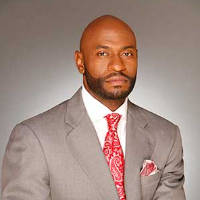 Smyrna RICO Act Lawyers, Georgia
Smyrna RICO Act Lawyers, Georgia
Sponsored Law Firm
-
 x
x

Click For More Info:
-
The Ford Law Firm
Assault, DUI, Firearms, Murder, more... Expect Results, Not Excuses
I understand how the system works. Potentially, even getting the case dismissed before it is ever filed against you…it is important to act quickly. Call now at the number below.
800-298-1630  Thomas Ford Alpharetta, GA
Thomas Ford Alpharetta, GAAttorney At Law - GA, 1996
University of Florida, J.D. - 1995
 State & Federal Law
State & Federal LawCriminal cases are filed in both State and Federal Courts. Click for Info.
Not enough matches for Smyrna RICO Act lawyer.
Below are all Smyrna Criminal lawyers.
Sponsored Lawyers
1-10 of 29 matches
Criminal, Accident & Injury, Health Care, Traffic, Consumer Rights
The Toler Law Group specializes in fighting to protect and enforce your 4th amendment right. Many Sex Crime lawyers want you to plead without investigating to see whether there is reason to contest the case. The consequences of a Sex Crime charge are too severe to overlook even the smallest detail. If there is evidence to support your innocence, we will advocate on your behalf, either in or out of the courtroom. The Henry Toler Lawyer Atlanta Firm specializes in contested cases in your Sex Crime related accusation. A Sex Crime charge does not mean a conviction. The Toler Law Group has built our reputation through expertly handling many cases over the last 20 years. Don’t allow yourself to walk into the courtroom without consulting an experienced attorney about your case. Henry Toler Lawyer Atlanta offers a FREE initial consultation over the phone or in our office. The Toler Law Group simply offer our best analysis of the case at hand and offer to help you resolve your case as positively as possible if you request we do so.
(more)Criminal, Felony, Misdemeanor, Traffic, Juvenile Law
Quinn Johnson is the principle of The QUINN JOHNSON LAW FIRM, P.C. Our firm has earned a reputation of getting results on behalf of our clients throughout the entire State of Georgia.
(more)Accident & Injury, Criminal
A Former Prosecutor and natural born trial Attorney, Nathan J. Wade is a seasoned attorney licensed to practice in all of Georgia’s courts. He is a skilled negotiator who knows when to take a case to trial. He serves the citizens of Cobb County as Associate Municipal Court Judge and as a Pro Has State Court Judge. Whether you are in need of representation after a major car accident or are going through a change in your personal life that requires representation with a family law issue; whether you have a contract dispute, or whether you are involved in any type of civil litigation, Nathan J. Wade will be a zealous advocate for you. As a private practitioner for many years and a recently appointed Special Assistant Attorney General for the State of Georgia, Nathan J. Wade has been recognized by his peers with numerous awards for his excellence as an attorney and for his service to his community, to include Georgia’s Top Lawyer/Legal Elite award and the Justice Robert Benham Award for Community Service.
(more)Criminal, Real Estate, Accident & Injury, State Appellate Practice, Car Accident
Judge Marc Pilgrim is a proud graduate of the University of Georgia School of Law and has been practicing law for over twenty-eight years. He currently serves as a part time Probate Court Judge in Fulton County. His primary practice areas are criminal law, probate, estate planning, real estate and personal injury. During his extensive legal career, he has fought for the rights of his clients in front of Judges throughout the state, including the Supreme Court of Georgia. His diverse legal background allows him to identify defenses and legal strategies which gives his clients the edge during trials and in negotiations with prosecutors. As a trail attorney, Marc used his teaching gifts for making complex legal concepts easy to understand for his clients and for the courts. As a professor, Marc taught civil procedure, property law, business law and paralegal studies in the traditional setting at Morris Brown College. In addition, he taught an accelerated paralegal studies program at the University of Georgia's Gwinnett Campus, training the next generation of paralegals with practical and textbook knowledge of the legal profession. Marc's ability to simplify concepts is of great benefit to his real estate practice where new buyers often have questions about the process and the documents they are signing. His sincere desire to help them understand creates a stress free and efficient closing experience for buyers, sellers and agents. Marc believes in providing the most convenient closing experience for all parties and doesn't mind taking the closing experience outside of his office, providing mobile closing services for clients on both ends of the transaction throughout the metro area. Marc explains his client-centered approach to his real estate practice this way, “I try to work with my client's busy schedules. I let them go as fast or as slow as they need and take the closing table to them whenever closing at the office in the traditional setting is not convenient for them. When they close with me, they will feel as though they understand the documents and walk away satisfied and without losing excessive time away from their work or other obligations. In his free time, Marc enjoys listening to history podcasts and spending time with his wife and family. Marc and his wife April are active members of North Avenue Presbyterian Church in downtown Atlanta where Marc serves as an ordained Deacon. Marc's wife is also a real estate broker and when not selling real estate, she assists him in his real estate closing practice. She and Marc both know first-hand the stressors agents and their clients experience in the stressful process of buying and selling homes. You will not find a more agent accommodating closing attorney than Marc Pilgrim!
(more)




 Thomas Ford Alpharetta, GA
Thomas Ford Alpharetta, GA State & Federal Law
State & Federal Law





